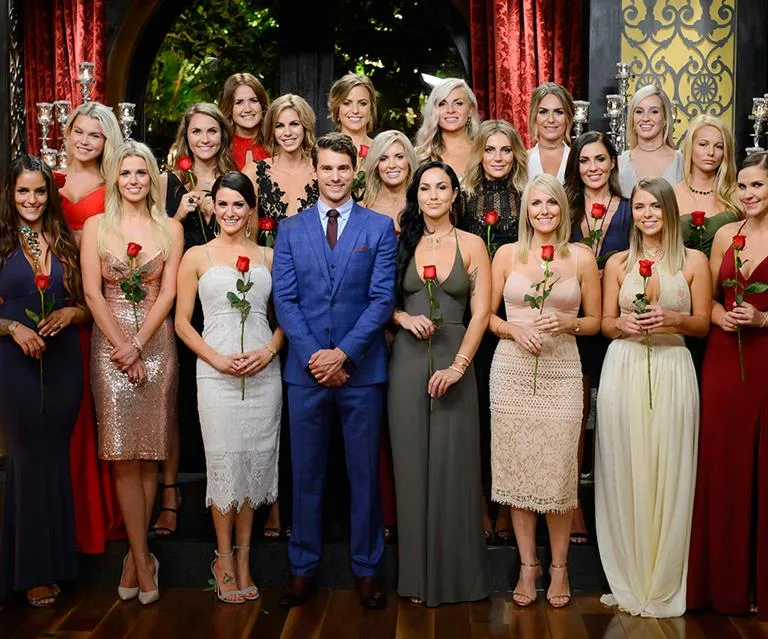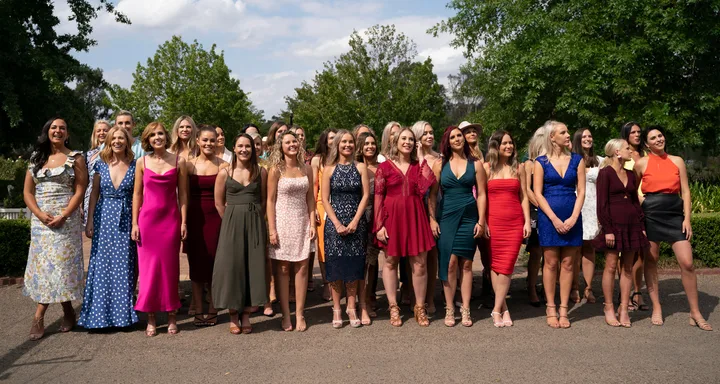Australian reality television has faced its fair share of diversity problems over the years. To date, we have only seen one person of colour front The Bachelor or The Bachelorette series. It’s also never delved into an LGBTQI+ storyline, with the exception of course of the “queer-bating” the franchise attempted in its spin-off Bachelor In Paradise, which in turn, was also met with sexist comments by the male contestants which fueled the tired, offensive straight male trope of fetishising bisexual women, claiming they exist for the pure enjoyment of male entertainment.
One of the country’s most beloved reality franchises, A Farmer Wants A Wife, made its premiere on July 26 and upon its return after a four-year hiatus, it seems the series hasn’t evolved to reflect the very real diversity we see in Australia every day. Instead, the franchise not only has five white males looking for love, but not a single person of colour was cast in the hopes of winning a farmers heart.
Frankly, it’s unacceptable in 2020.
And while it was slated as this year’s wholesome dating show to tune into, many viewers thought the same, taking to Twitter to air their frustration at the lack of diversity it represents. Many even coined a new name: “A Farmer Wants A ‘White’ Wife”.
It’s not just the series all-white casting that fans took issue with either, but the exclusively straight relationships being pursued and represented on the show. Many posed the question of whether it was time to portray queer relationships to the mainstream.
This argument is by no means new in the reality television world. A lack of diversity in franchises such as The Bachelor and A Farmer Wants A Wife have been rampant for years. And even when these series attempt to depict Australia’s multiculturalism it’s still often solely one-dimensional, more so a way of “ticking a box” to portray different faces without actually delving into the cultural importance of having such people shown on the screen.
Earlier this year, when Big Brother returned, it, too, faced its own problems with diversity. It’s first three evictees – Fijian-Australian Laura Coriakula, Chinese-Australian Allan Liang and Korean Soobong Hwang – were all-non white contestants. They were also the only three cast in the season.
While Allan told HuffPost Australia it was simply “coincidence” and “bad luck”, others like Sydney Morning Herald’s Michael Idato put it down to complex issues of casting.
“I think what people see when they criticise that is that people in the house are making a subconsciously racist decision to eject everyone who’s non-white,” he said on The Televisionaries podcast, adding “What I think is actually happening happens on a more complex level – it’s not the house that’s the problem … the problem lies in the casting.”
The same can be said of The Bachelor, which has admittedly made some attempts to portray non-white contestants. In 2017, Matty J’s season cast one person of colour, Elora Murger, from Tahiti. But while that was somewhat progressive, it took three steps back by choosing to promote her time and time again as “exotic”.
But while we do see a lack of representation, current Bachelor In Paradise contestant Niranga Amarasinghe previously told news.com.au that he doesn’t believe “the Bachelor franchise is purposely trying to do this” but feels that cultural barriers people of colour face could be at play when auditioning for such shows.
“From experience, there are less POC auditioning for reality TV,” he told the publication. “For the ones who do and are successful, there is another hurdle an individual has to conquer to actually make it to the filming stage. They have to convince their families they are happy for them to go on reality TV. POC individuals can have very strict cultural backgrounds which don’t always allow this kind of public display.”











